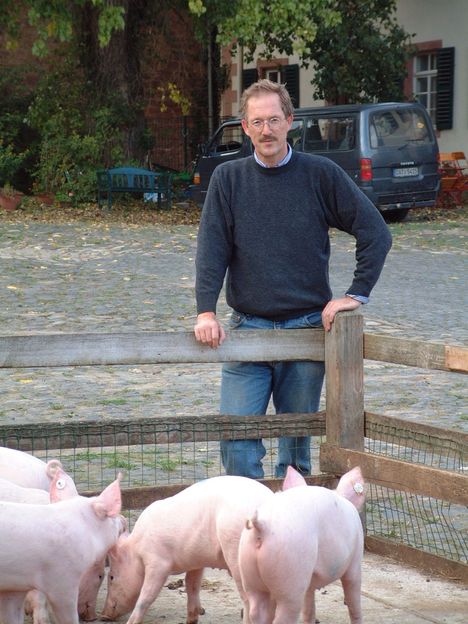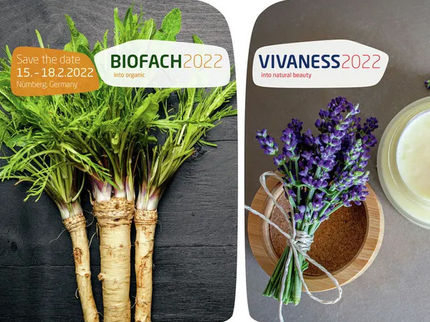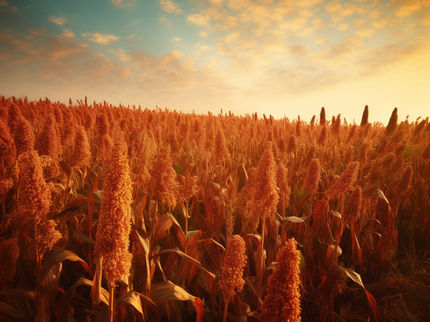BIOFACH 2015: Vegan and organic – the perfect couple or a relationship full of tension?
Interview with Prince Felix of Löwenstein, Chairman of the Federation of the Organic Food Industry (BÖLW)
Advertisement
How does the organic sector see the trend towards veganism? Is there an organic vegan agriculture, and how has consumer behaviour with regard to animal products changed in recent years? At Biofach 2014, suppliers of vegan products were able to exhibit for the first time in a separate trend category at the Novelty Stand. Over 100 of the 500 or so innovations registered there were from the vegan sector and were very popular with the over 42,000 trade visitors. Many of these delicious foods have been listed for retail ever since. In 2015, the world's leading trade fair for organic foods, running from 11 to 14 February 2015, will be devoting a separate special exhibit area to vegan products. We talked with Prince Felix of Löwenstein, organic farmer and Chairman of the BÖLW, the national honorary sponsor of the world's leading exhibition, about the trend and the sector's view of it.

NürnbergMesse GmbH
What does the industry have to say about the growing trend towards a vegan diet? Is the sector open to organic vegan methods of cultivation?
Prince Felix of Löwenstein: The vegan way of life is helping to reduce the consumption of animal food products and encouraging people to look at the way animals are kept and fundamental dietary matters. Organic vegan agriculture may be a viable option for one or two farms, but not for farming as a whole. Organic vegan farming makes it difficult to provide plants with nutrients – especially with light soils and even if nitrogen-collecting plants are grown. The combination of livestock farming plus crop cultivation offers better options.
Organic vegan agriculture – can it work at all? Isn't keeping livestock or the use of animal manures automatically part of ecological agriculture?
Prince Felix of Löwenstein: Precisely. And this does not just affect the organic farms. After all, almost 30 % or 4.6 million hectares of German agricultural land and 70 % of agricultural space worldwide are pasture land. In these areas, people can only produce foods if they keep livestock. Without the use of pastures, it is impossible to ensure a global food supply.
In general, a reduction in the consumption of animal products means a step forward on the path to ensuring a global food supply and better climate protection – major concerns in the organic sector. But it is here that veganism is particularly criticised. Why?
Prince Felix of Löwenstein: It is not veganism in itself that is regarded critically. Ultimately it makes sense, if we look at the climate, individual health and the competition between the trough and the plate, to consume less meat, milk and eggs. The consumption of animal foodstuffs is too high in Germany and other Western countries if we consider how many resources the production of animal foodstuffs devours. What is viewed critically is the claim that is now being put forward that veganism is the only possible concept. That’s because animals have a significant role to play in organic agriculture. They help to keep nutrients in circulation. And the nutrients needed in pastures only reach the field via animals.
If it has to be meat, then it must be organic meat – what's been happening in recent years in society when it comes to meat consumption, in your view? Have people become generally more conscious of what they're doing in this respect?
Prince Felix of Löwenstein: Nutritional matters have shifted into the public perception in past years. This is a welcome development, particularly because we're not just talking about culinary or dietary aspects here, but also about how foods are produced, processed or treated. We are seeing the appearance of a critical mass of customers who can force the food industry and politicians to rethink. That’s because the concept of a system of livestock farming that uses up too many resources, damages the climate, disregards animal welfare or destroys species diversity is becoming increasingly unacceptable. This can also be seen on our supermarket shelves. The growing interest in animal welfare benefits the ecological livestock farmers – do their animals have plenty of space in their stalls and a place to run free, are they fed on organic feed, and do farmers work openly and not behind closed farmyard gates?
What kind of effect is the trend having statistically? Is it already reflected in the figures for organic meat and dairy products?
Prince Felix of Löwenstein: The market for organic products is still a demand-driven market. This also affects sales of animal products. In the animal sector, in 2013, table eggs accounted for the highest share in the total market, at just over 7 %. Sales of milk products also increased. With the exception of lamb and beef, the market share of organic meat, however, remained very low. Not even one per cent of pigs in Germany are kept on organic farms, for example. For poultry, there was a clear production increase of 17 % in 2013, though the level is still low. Alongside organic animal products, however, foodstuffs increased which are part of a vegan diet, such as nuts, nut spreads or oleaginous fruits.
Vegan or organic – or ideally both? In your personal view, how can organic and vegan actually become the perfect couple?
Prince Felix of Löwenstein: It's not just those who want to live a vegan life who should consider the animals, their own health and food production methods. Because the production of fruit, vegetables, grains, nuts or other plants is better for species diversity, the climate and the farmers is better if it is organically based. Customers can decide for themselves whether organic and vegan are a perfect couple. In any case, when they decide to buy something, they have to take responsibility. This applies for the consumption of animal food products as much as it does for the decision to buy regional and seasonal products and to appreciate their food and not waste it.
























































